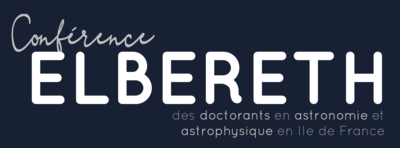Orateur
Description
Next-generation large galaxy surveys, such as Euclid and DESI, will provide unprecedented datasets to tackle fundamental cosmological questions: What is the nature of dark matter? What drives the accelerated expansion of the universe? Exploring these mysteries requires the analysis of the three-dimensional distribution of large-scale structures, collectively known as the cosmic web, which form through the gravitational evolution of primordial density fluctuations in the early universe. However, statistical analyses of these datasets require an enormous number of numerical simulations that emulate the cosmic web, a process that is very computationally expensive. A potential way to circumvent this problem is to employ machine learning techniques, specifically generative models, which can generate these simulations orders of magnitude faster while also faithfully reproducing the statistics of the cosmic web. In this project, we utilise the power of generative models, particularly diffusion models trained on cosmological simulations, to overcome these computational constraints.
| Astrophysics Field | Cosmological Simulations, Generative Models, Diffusion Models |
|---|

